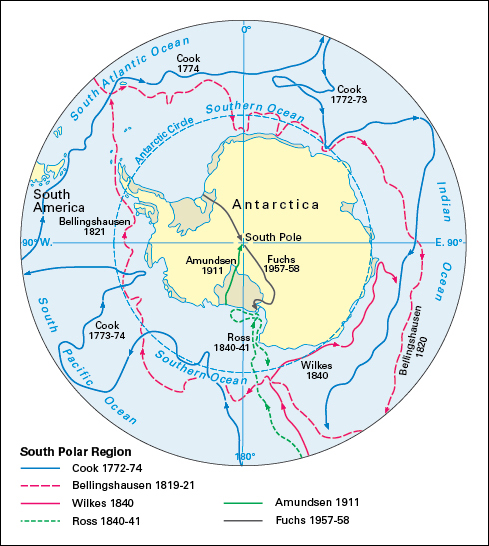Wilkes, Charles (1798-1877), was an American explorer and naval officer. From 1838 to 1842, he led a United States Navy expedition that proved Antarctica was a continent. Wilkes was also a key figure in the Trent Affair, which was a naval incident that almost made the United Kingdom an ally of the Confederacy in the American Civil War (1861-1865).
Wilkes was born on April 3, 1798, in New York City. In 1840, the Wilkes expedition sailed more than 1,500 miles (2,400 kilometers) along the coast of Antarctica. Wilkes became the first person to recognize Antarctica as a continent and not just a huge ice pack. In 1842, the Navy court-martialed Wilkes on numerous charges, but found him guilty only of illegally whipping members of his crew. He served on special duty from 1843 to 1861, mainly writing reports on his expedition’s findings.

The Trent Affair began in November 1861, when Wilkes seized Confederate diplomatic agents James Mason and John Slidell from the British ship Trent near Cuba. This act violated the principle of freedom of the seas. Northerners considered Wilkes a hero, but the U.S. government in time released the two agents. See Trent Affair . Wilkes died on Feb. 8, 1877.
